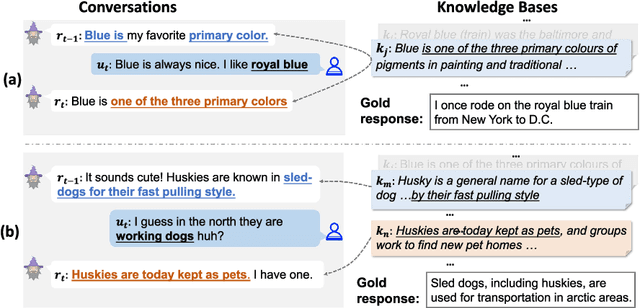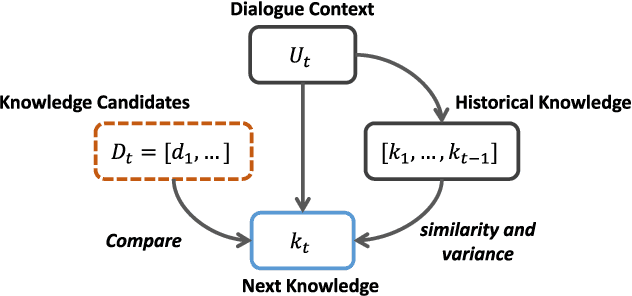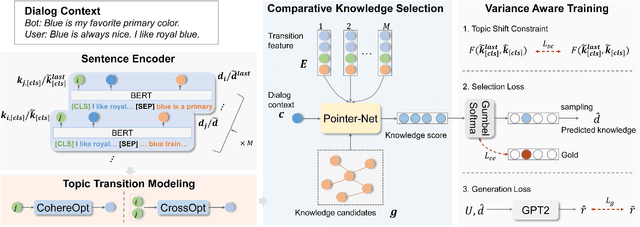CET2: Modelling Topic Transitions for Coherent and Engaging Knowledge-Grounded Conversations
Paper and Code
Mar 04, 2024



Knowledge-grounded dialogue systems aim to generate coherent and engaging responses based on the dialogue contexts and selected external knowledge. Previous knowledge selection methods tend to rely too heavily on the dialogue contexts or over-emphasize the new information in the selected knowledge, resulting in the selection of repetitious or incongruous knowledge and further generating repetitive or incoherent responses, as the generation of the response depends on the chosen knowledge. To address these shortcomings, we introduce a Coherent and Engaging Topic Transition (CET2) framework to model topic transitions for selecting knowledge that is coherent to the context of the conversations while providing adequate knowledge diversity for topic development. Our CET2 framework considers multiple factors for knowledge selection, including valid transition logic from dialogue contexts to the following topics and systematic comparisons between available knowledge candidates. Extensive experiments on two public benchmarks demonstrate the superiority and the better generalization ability of CET2 on knowledge selection. This is due to our well-designed transition features and comparative knowledge selection strategy, which are more transferable to conversations about unseen topics. Analysis of fine-grained knowledge selection accuracy also shows that CET2 can better balance topic entailment (contextual coherence) and development (knowledge diversity) in dialogue than existing approaches.
 Add to Chrome
Add to Chrome Add to Firefox
Add to Firefox Add to Edge
Add to Edge